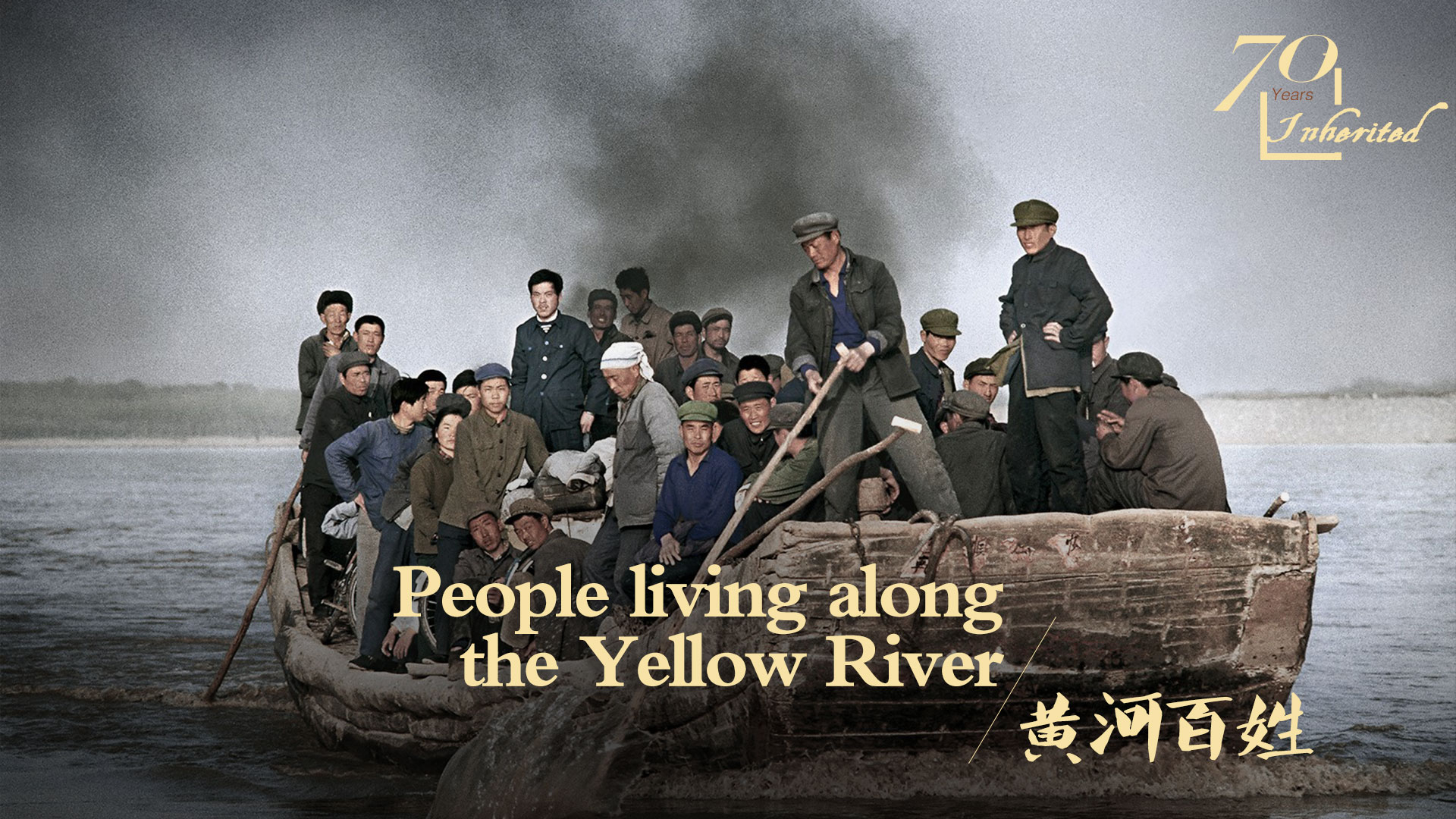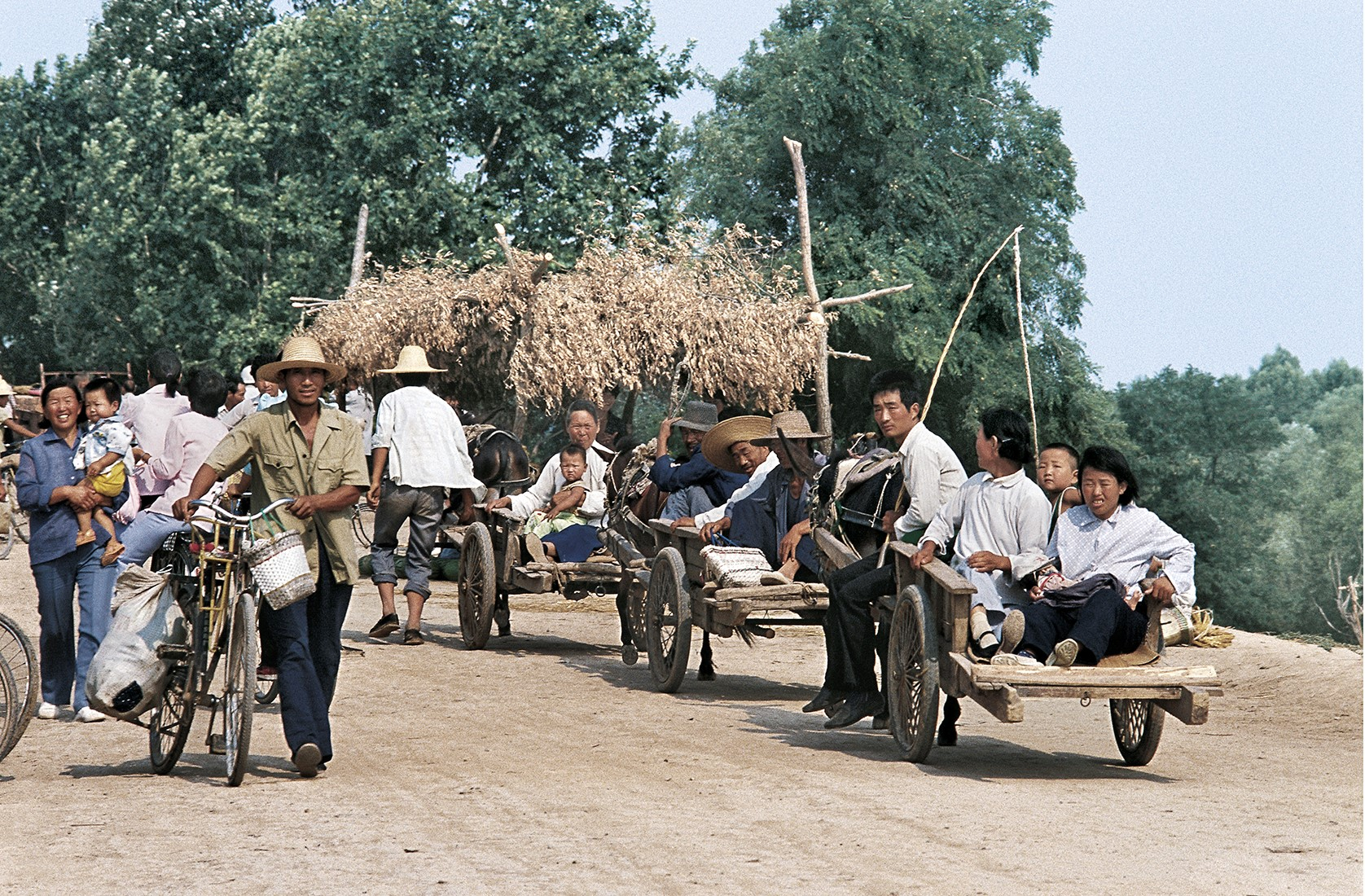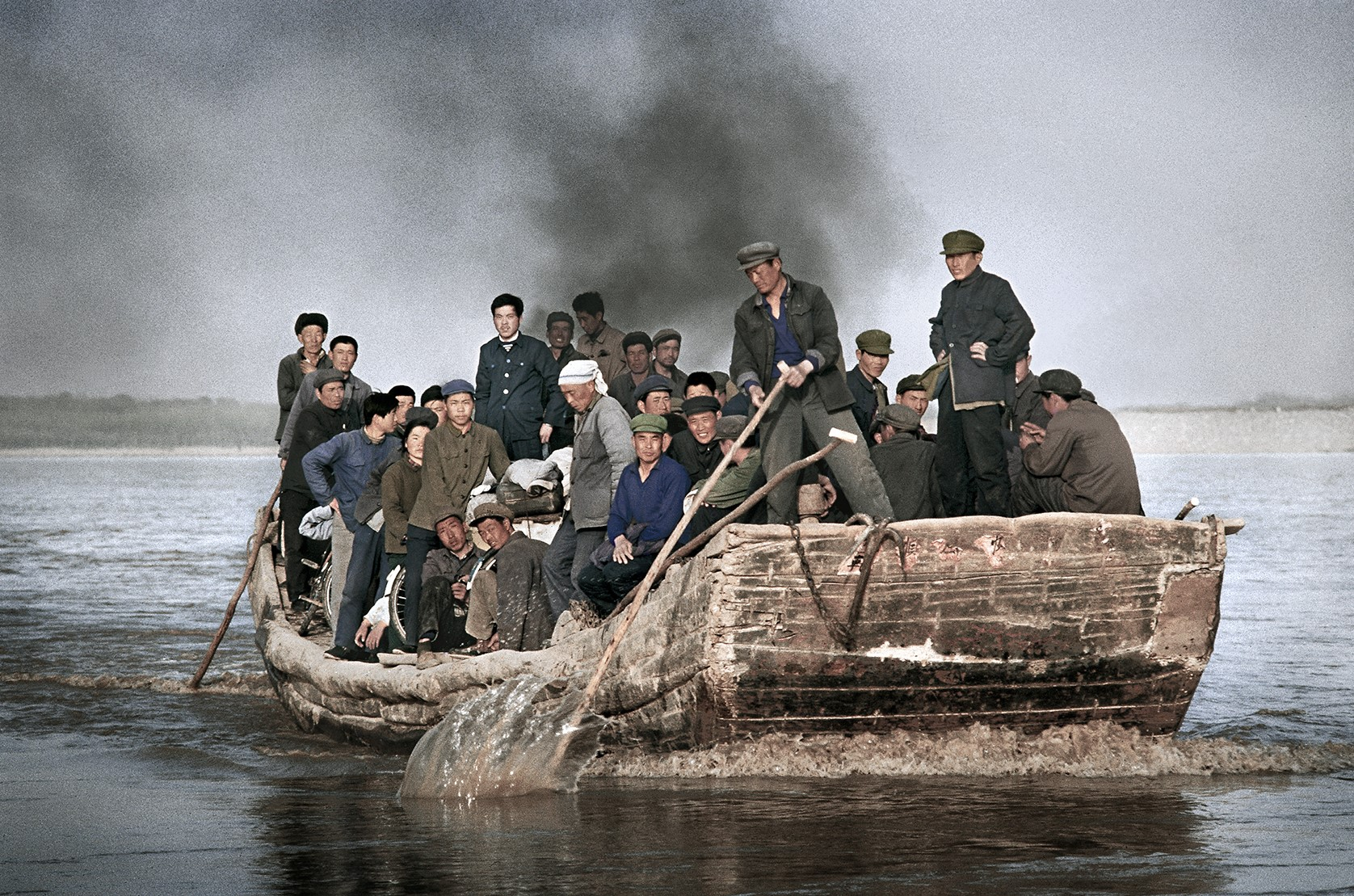05:14

The Yellow River is considered the Mother River of China and the cradle of Chinese civilization. It has been nurturing Chinese for millennia. With various landforms across its river basin, the Yellow River used to be the route of several natural disasters such as floods and droughts, leaving residents along the river in danger and poverty for long.
Since the founding of New China in 1949, the Chinese government has heavily invested in taming the Yellow River, thus bringing great changes in people's life. Zhu Xianmin knows too well these decades of development and has been recording the history of the Yellow River.

Market day is always extra busy for rural people.
Market day is always extra busy for rural people.
Zhu was born in a rural family in Pucheng Town in east China's Shandong Province. Now, he is a world-renowned documentary photographer. Growing up by the Yellow River, he has a deep affection for its land and its people. He feels obliged to record his hometown with camera.

Farmers on their way to the fields, 1981.
Farmers on their way to the fields, 1981.
"A good photo has a soul. The works can reflect the photographer's mood towards his subject. We should take more pictures of the ordinary life that we are familiar with," says Zhu.
Zhu has one principle when he chooses what to capture with his lens: the truth. It was also his original intention when he started his career as a documentary photographer. The Yellow River flooded several times in his childhood, submerging villages and farmland. However, people remained strong and tenacious. Without a bridge, they once crossed the river with small wooden boats. Farmers struggled to wrest a living from the soil. The honest and diligent people have been fighting for their home for generations.

The Ferry in Shandong Province.
The Ferry in Shandong Province.
Inspired by these people, Zhu took many photos. While looking at his photos, the audience can feel the joy and sorrow in those unknown faces.
"Documentary photography means recording real life in plain sight. Any detail in the photo could trigger an emotional communication. In this way, it touches people," Zhu asserts.
With the development of society, living standards have much improved. The wooden boats and white-turbaned boatmen became reminiscent stories. But those old times did not vanish, they now remain in people's memory in another way. And Zhu Xianmin treasures and shares these memories through photography.
(All photos courtesy of Zhu Xianmin)
Director: Zhou Xin
Editor: Wang Mingyuan
Filmed by Ma Zesong
Designer: Jia Jieqiong
Text by Hu Yue
Copy editor: Liane Ferreira
Producer: Wen Yaru
Chief editors: Wang Dongmei
Supervisor: Pang Xinhua